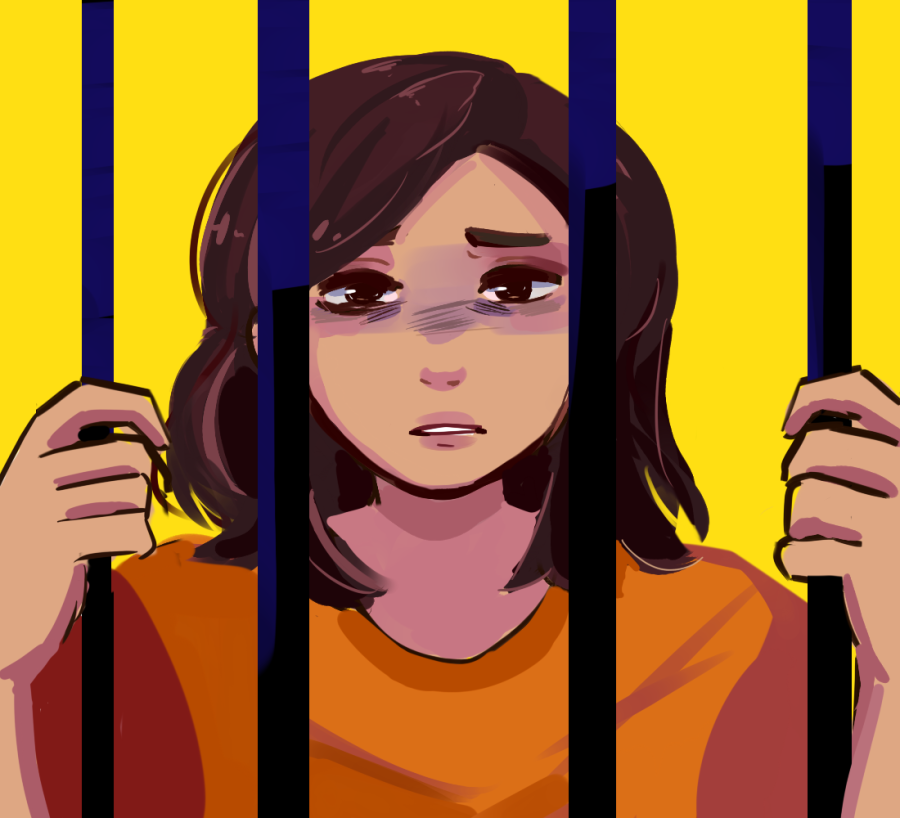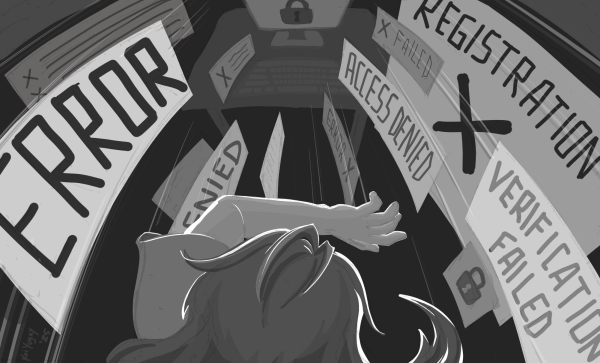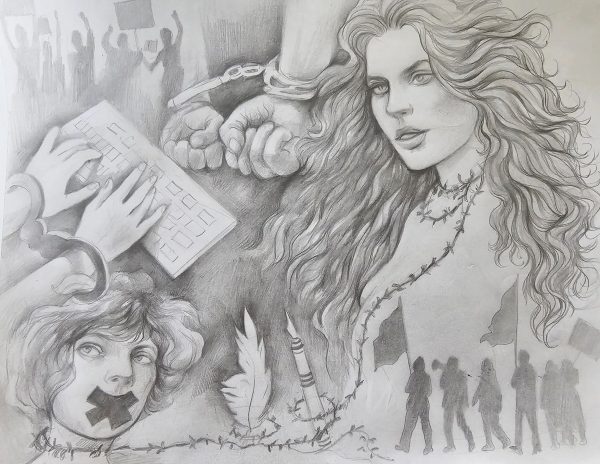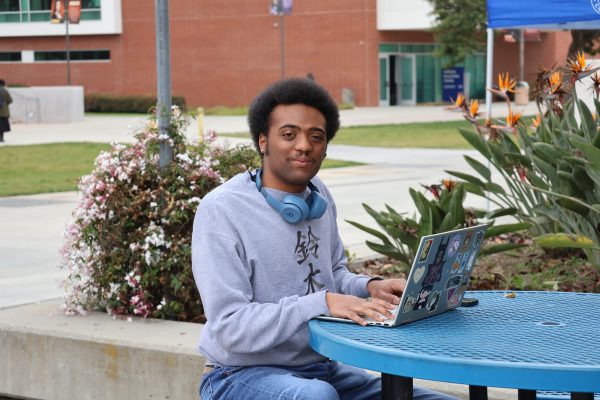Love beyond bars: My boyfriend was incarcerated, but it felt like I was serving time, too
Summer 2021. I sat for eight hours on an overnight bus traveling from San Francisco’s Caltrain Station to Union Station in Los Angeles.
I was finally able to visit my boyfriend who was incarcerated at Twin Towers Correctional Facility in Los Angeles. It had been over six months since I last saw him.
It was still dark when I arrived at Union Station at 6 a.m. I walked to Denny’s to get some crispy bacon and eggs.
My visitation was scheduled for 9 a.m. I applied face powder, pink blush and cinnamon-colored lipstick at the breakfast table. I wanted to look nice for him.
The weekend is always special because it’s the only time we are allowed to visit incarcerated loved ones. We wake up super early and line up outside the facilities ahead of our visiting time.
According to a 2018 report by FWD.us, 6.5 million adults in the U.S. have an immediate family member currently in jail or prison.
A deputy checked my identification at the security gate and let me in. While in the waiting room, I saw a woman come a minute late to her visit and beg to be let in.
Her bus was late and she traveled 100 miles to see her husband. The deputy had no mercy. He turned her away.
Feeling powerless, I could not say anything or make a scene because there would be repercussions. We could be blacklisted and lose our visitation privileges in the future.
I had to pick my battles. I did not travel for eight hours by bus from San Francisco to L.A. only to be sent home without seeing my boyfriend.
Soon they called my name and I took an elevator to the third floor. As I got out, I saw my boyfriend sitting behind a glass wall. I ran to him and cried. I saw one of his hands was handcuffed to the booth.
I did not know that we would be separated by the glass wall. I thought I could hold his hands or hug him. We talked through a phone. He was right in front of me, but his voice sounded so far away.
We talked and we laughed. We put our hands against the glass wall. The visitation was only for 30 minutes. I did not get to tell him all the stuff I’ve been waiting to tell him – how I loved my new job, how I had five boba shops within walking distance from my new apartment.
When visiting time was over, they cut the phone line. The deputy came, handcuffed both of my boyfriend’s hands and took him away.
I got on the elevator with two women I had chatted with in the waiting room. We looked into each other’s eyes and smiled. We did not say anything, but I felt like that was a code. We had to be strong. We would get through this. Together.
I went home to San Francisco the same day. Sixteen hours on a bus for 30 minutes of visitation. My friends and family figured it was just love. But it’s more than that.
Being there for my boyfriend was my form of resistance to the unjust criminal justice system.
Throughout my visitations, I noticed that the majority of visitors are women. Children and women are heavily impacted by incarceration. It affects family relationships, emotional and economic well-being.
Supporting incarcerated loved ones is not easy or cheap. Phone calls and commissaries in jail and prison are expensive. I was spending $200 for phone calls per month through a company called Global Telephone Link.
Items sold inside jail and prison are double or triple the regular price. I spent $100 monthly to buy him 10 cups of Top Ramen, one honey bun, a bag of hot chicharrones and a couple of pouches of tuna.
Last year, Gov. Gavin Newsom signed a bill that made phone calls free in California prisons. That was too late for me. If it was free, I could have talked to him every single day. I would have not felt so lonely. He was my best friend.
I felt like I was being punished, too. I couldn’t really talk about it to my friends or family because of the stigma. The isolation became unbearable and took a toll on my mental health. I saw a therapist every week, so that I had someone to talk to.
During these tough times, I found healing through making documentaries about the impact of mass incarceration on families. I cried while filming and editing, but felt relief. I released my emotions: anger, sadness, powerlessness, loneliness.
After completing my bachelor’s degree in television production at California State University, Northridge, I was hired by a non-profit organization that advocates for communities impacted by incarceration to be their in-house filmmaker.
Not only did I find my dream job, but I also found my community and support. I got paid to do things that I love. Things that mattered to me.
My boyfriend eventually came home in December 2021. He was incarcerated for a year as a result of an unhealthy coping method for his depression and charged with a DUI.
Prior to his incarceration, he suffered from severe depression, anxiety and generational trauma. Jail didn’t make him a better person though. It only added more trauma.
Even after he was released, I felt like I was still being punished. An armed parole officer came to our Torrance apartment once a month and collected his urine for a drug test. He had a key to our front gate so he could knock on our door anytime, unannounced.
The officer had the power to send my boyfriend back to jail for any parole violations. A traffic stop because of a broken tail light could land him back in Twin Towers Correctional Facility.
My heart was beating so fast and I sweated every time I saw a police car while driving with him. I said to myself, “Please, not today.”
In December 2022, my boyfriend was released from parole one year early for good behavior. When I heard this news, I felt like a heavy rock was lifted from both of my shoulders. Now, I am free, too.
Editor’s Note:
- Illustration was enlarged on Thursday, June 15.









